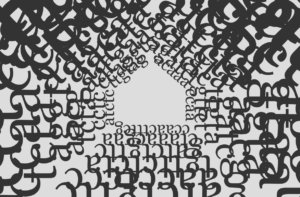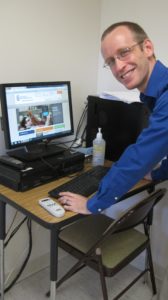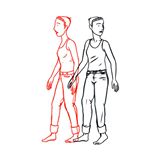
Screenshot of Whalen’s digital poem “pent house”
Zach Whalen, Associate Professor in Communication and Digital Studies, has published a digital poem titled “pent house” in the journal Taper. Submissions for this issue were meant to address the theme “pent up” as a way of thinking about life in a pandemic, and works are constrained to no more than 2KB of code with no external libraries. “pent house” excerpts letters from the gene sequence of SARS-Cov-2 and arranges them in a five-sided spiral.






